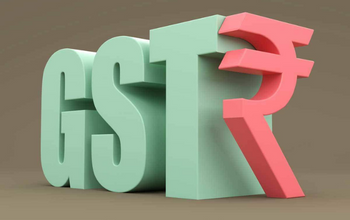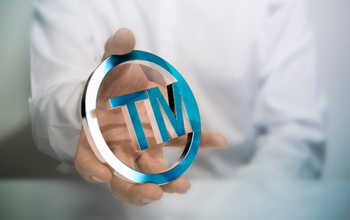Copyright Vs. Trademark - What Is The Difference Between Two?
Author
MGCO
Published On
8 Dec 2022
Both copyright and trademark are categories of intellectual property rights. The terms copyright and trademark are frequently used in newspapers, television programmes, the internet, the goods you consume from the internet, etc., daily. Almost every company uses logos and taglines for the identification of their brands and to differ it from other similar brands, as well as for the things they sell. Although they are intangible assets that we cannot touch, they do have a monetary value in some way.
To better understand the difference between both, read the full blog. In this blog, we have also covered the process and documents required for copyright and trademark registration.
Consult Us
What are Intellectual Property Rights?
The term "intellectual property rights" (IPR) refers to the legal privileges granted to the inventor or creator to safeguard their work for a predetermined time. These legal rights allow the inventor, creator, or assignee the sole right to fully use their idea or creativity for a specific time.
Patents, trademarks, copyrights, and trade secrets are valuable assets of the company and understanding how they work and how they are created is critical to knowing how to protect them
Here are explanations of the two most prevalent intellectual property rights:
- Copyright
- Trademark
Copyright
A mechanism for protecting intellectual property is called copyright, and it typically applies to written works, musical compositions, visual arts such as paintings and sculptures, books of poetry, screenplays, etc.
It gives a work's originator the sole authority to copy, reproduce, or publish it for monetary gain or other purposes. The copyright is not specifically required to be registered.
Trademark
A trademark is any image, word, phrase, colour, sound, or combination used to produce or sell products or services. It acts as a source to identify goods or services and differentiate them from others. It grants the sole right to utilize a trademark on goods or services.
What's the difference between copyright and trademark?
Intellectual property, also known as intangible assets or creations of the mind, includes inventions, literary and artistic works, designs, symbols, names, and images used in trade. Trademarks and copyright are two examples of intellectual property.
Any commercial ideas, together with any works or procedures derived from those ideas, can be considered intellectual property for firms. However, trademarks, copyrights, and patents are all used to protect intellectual property legally.
Therefore, the main distinction between trademark and copyright is that, while both provide intellectual property rights, but in different ways as mentioned above and with various registration requirements. Hence, there is also a difference between the trademark and copyright registration process.
In general, copyright safeguards are written and visual works, such as books and videos, and you automatically receive the copyright of your work at the time of creation. Contrarily, a trademark protects things that contribute to a firm's brand, like a company logo or slogan, and calls for more thorough registration with the government for the best legal protections.
Trademark Registration in India
Trademark registration online is a phrase frequently used to describe trademarks and service marks. Trademark registration online helps product differentiation within the judicial and commercial systems and significantly with customers. Trademark registration online identifies and defends the words and visual components that identify a creator, source or owner of a goods or services. These could be brand names for products, company slogans, or logos. A service mark identifies and distinguishes the source of the service rather than the product, similar to trademark registration.
Types Of Trademarks Registration In India
The following are several types of trademark registration in India.
- Words and service marks
- Shape marks
- Logos and symbols
- Collective marks
- To know more about it in detail click here.
Procedure For Trademark Registration
The trademark registration online procedure is more complicated than it appears. It entails several procedures and follow-up governmental activities. Lawgical India has made it simple for you by doing most of the work. Protect your company's brand, motto, and logo by registering your trademark.
You need to follow the following steps for trademark registration;
Trademark Research
Our experts will run a thorough trademark database search after you give us basic details about the trademark you want and the sector you work in. We will investigate the availability of the brand you want to register.
Class and documentation selection:
The next task is to select the proper classes for your online trademark registration. You shouldn't worry too much, though. You can choose the appropriate classes that address every part of your organization with the help of our specialists. You can begin uploading all of the necessary paperwork for trademark registration in India at once.
Submitting a trademark application:
Our team will review it after you've uploaded all the required paperwork. Then, on your behalf, a trademark application form will be filled out and sent with supporting documentation. Our team will ensure that your application is flawless and exact to the last detail.
We will keep you informed of the procedure's status and keep an eye out for any notices from the trademark registrar until the trademark registration in India is finished.
Trademark objection:
You've received this as a Notice of Trademark Objection, and you have 30 days to respond. Our specialists can help you present the appropriate paperwork and proof while also helping you craft a powerful objection response. The examiner occasionally may have some inquiries regarding your application.
Opposition to the objection:
You run the risk of facing opposition from a third party. In this situation, you have two months to submit a counterstatement to the Secretary outlining why the objection is invalid. The Chief Clerk may deny the complaint or ask for a hearing based on your response.
Documents for Trademark Online Registration
- Applicant's Name
- Type/ Objective of business
- Brand/logo/slogan name
- Address of Registration
- Signed Form-48
- Identity proof of the signatory
- Proof of address
- Business proof (based on the type of business)
- Udyog Aadhar/MSME registration certificate (optional)



